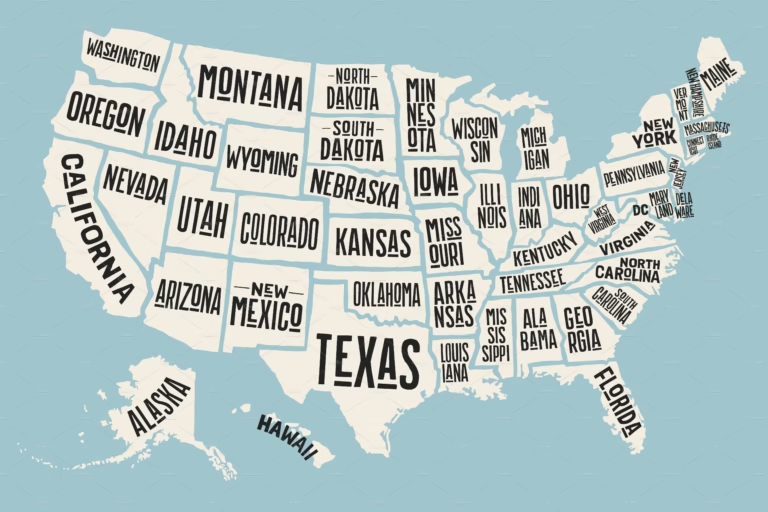🎧 Listen to This Article
Which States Tax Social Security Benefits in 2025?
The annual cost-of-living adjustment (COLA) for Social Security recipients is often a double-edged sword. While it provides a welcome increase in benefits, it can also push incomes high enough to trigger state and federal taxes on Social Security payments.
Most U.S. states do not tax Social Security benefits. However, 10 states still do in 2025—with varying tax rates, exemptions, and income thresholds. Understanding your state’s policies is essential to avoid unexpected tax liabilities.
Below, we break down each state’s Social Security tax rules and offer strategies to reduce your tax burden.
10 States That Tax Social Security in 2025
While federal tax applies to Social Security based on total income, the following 10 states also impose their own Social Security tax policies:
1️⃣ Colorado
✔ If you’re 65 or older and your federally taxable Social Security income is over $24,000, you can deduct the full amount on your state tax return.
✔ If you’re under 65, only the first $20,000 of your Social Security benefits is exempt.
✔2025 update: Colorado will extend the full $24,000 exemption to residents aged 55-64.
2️⃣ Connecticut
✔ No Social Security tax if Adjusted Gross Income (AGI) is below $75,000 (single) or $100,000 (married filing jointly).
✔ If income exceeds these limits, 25% of benefits may be taxed.
3️⃣ Montana
✔ Social Security benefits are taxed based on total AGI. ✔ The higher your AGI, the more of your benefits become taxable.
4️⃣ Nebraska
✔ 2024: 80% of Social Security benefits are exempt.
✔2025 update: Full exemption—Nebraska will completely eliminate Social Security taxes starting in 2025.
5️⃣ New Mexico
✔ Most recipients don’t pay Social Security tax.
✔ Only top earners are taxed:
- Single filers: Income over $100,000
- Married filing jointly: Income over $150,000
- Married filing separately: Income over $75,000
6️⃣ Minnesota
✔ Full or partial exemption applies depending on income. ✔ Exemptions phase out at:
- $105,380 (married filing jointly)
- $82,190 (single filers)
7️⃣ Rhode Island
✔ No Social Security tax if:
- Single filer earns less than $104,200
- Joint filer earns less than $130,250 ✔ Younger than full retirement age? No tax break.
8️⃣ Utah
✔ Social Security benefits are taxed if income is:
- $45,000+ (single)
- $75,000+ (head of household/married filing jointly)
- $37,500+ (married filing separately) ✔ Below these thresholds? You may qualify for a credit.
9️⃣ Vermont
✔ Full Social Security exemption for:
- Single filers with AGI under $50,000
- Married filers with AGI under $65,000
Exemptions phase out above these levels.
🔟 West Virginia
✔ Social Security is taxed if:
- $100,000+ (married filing jointly)
- $50,000+ (single filers)
How Do States Tax Social Security?
Each state has unique rules, but Social Security taxation generally falls into three categories:
Age-Based Taxation
Example: Colorado taxes benefits for residents under 65, while older taxpayers get a full exemption.
Income-Based Taxation
Example: New Mexico only taxes benefits for individuals earning $100,000+.
Federal-Tied Taxation
Example: Minnesota bases its tax on Social Security income already taxed by the IRS, though some recipients qualify for deductions.
How to Reduce or Avoid Social Security Taxes
✅ Roth IRA Withdrawals – Tax-free and don’t count as income for Social Security taxation.
✅ Health Savings Account (HSA) Withdrawals – Use for qualified medical expenses tax-free.
✅ Relocate to a Tax-Free State – Consider moving to a Social Security tax-free state.
Social Security Tax FAQs
🔹 How much can I earn before Social Security is taxed?
Federal tax kicks in if combined income (AGI + nontaxable interest + 50% of Social Security benefits) exceeds:
✔ $25,000 (single) / $32,000 (married filing jointly)
🔹 What states are eliminating Social Security taxes?
✔ Nebraska will remove Social Security tax in 2025.
✔ Missouri stopped taxing benefits in 2024.
🔹 Will Trump’s plan eliminate Social Security taxes?
Former President Donald Trump has proposed eliminating federal Social Security taxes. However, states could still impose their own Social Security taxes.
Need tax help? IRS Official Social Security Tax Guide
Learn about Three-Year Rule Explained: Don’t Miss Your Tax Refund Deadline!
For further details, clarification, contributions or any concerns regarding this article, please feel free to reach out to us at editorial@tax.news. We value your feedback and are committed to providing accurate and timely information. Please note that all inquiries will be handled in accordance with our privacy policy



